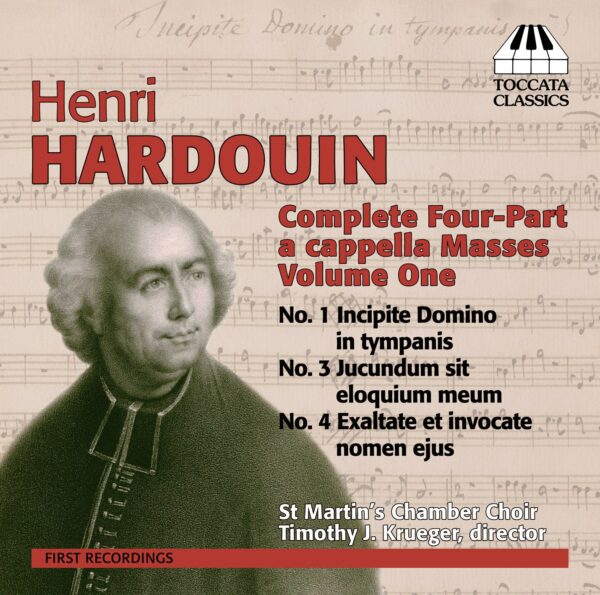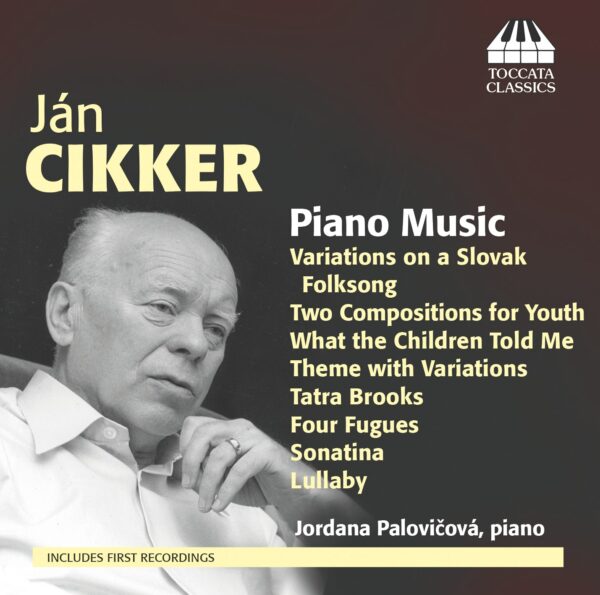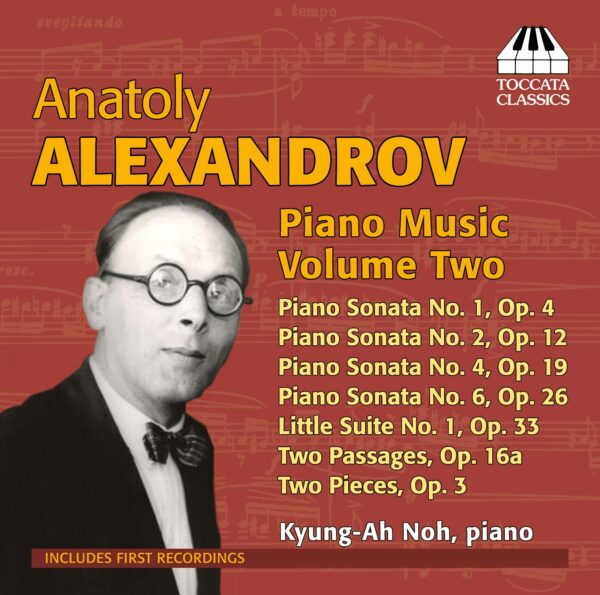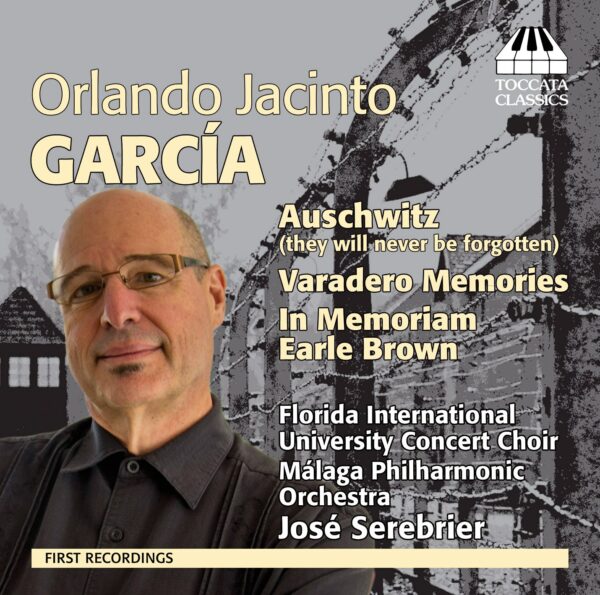Henri Hardouin: Complete Four-Part a cappella Masses, Volume One
Henri Hardouin (1727-1808) was a chorister in Rheims Cathedral, rising swiftly through the ranks to become maître de chapelle — until the French Revolution disbanded religious establishments. As a priest he was in potential danger and seems to have gone into hiding until, in 1794, the death of Robespierre allowed him to resume his duties. Hardouin's six four-part masses, published in 1772, are unusual for their time in being a cappella, and they enjoyed wide circulation in pre-Revolutionary France. Since then they have been roundly neglected — an omission this two-CD survey intends to rectify.
St. Martin’s Chamber Choir
Timothy J. Krueger, conductor
Listen To This Recording:
-
Mass No. 1, Incipite Domino in tympanis (publ. 1772)
- I Kyrie
- II Gloria
- III Credo
- IV Sanctus
- V O salutaris hostia
- VI Benedictus
- VII Agnus Dei
- VIII Domine salvum fac Regem
- I Kyrie
- II Gloria
- III Credo
- IV Sanctus
- V O salutaris hostia
- VI Benedictus
- VII Agnus Dei
- VIII Domine salvum fac Regem
- I Kyrie
- II Gloria
- III Credo
- IV Sanctus
- V O salutaris hostia
- VI Benedictus
- VII Agnus Dei
- VIII Domine salvum fac Regem
Mass No. 3, Jucundum sit eloquium meum (publ. 1772)
Mass No. 4, Exaltate et invocate nomen ejus (publ. 1772)





Fanfare Magazine :
‘[…] In terms of the music, the Masses are well-constructed pieces. They explore an unusual repertory of a cappella music that would not have been out of place anywhere outside of the major centers of France. Hardouin knows instinctively when to be powerful and stately, such as the opening of the Credo in the first Mass, and when to develop his contrapuntal acumen, as in the double fugue of the last “Et in venturi” of the second. He varies his textures between the larger chorus as a whole and the smaller choir, a selection of soloists, to bring out textural commentary on the Ordinary, something that would have enticed a violin accompaniment in, say, Austria. […] As for the performance itself, I find that the St. Martin’s Chamber Chorus is a well-disciplined ensemble. They are in tune, the soloists appear adroitly from inside the group, and their voices blend nicely together. Krueger has an excellent sense of tempo, keeping the music moving along, but neither too slow nor too fast. As a result the intricacies that Hardouin endows his Masses with come forth with steady ease. The recording sound is quite resonant, but here I don’t find it a distraction; rather, the reverberation lends itself to placement of the a cappella forces within the acoustical milieu that the composer intended. In short, this is a fine disc, and one that will certainly make choral music lovers take notice.’
—Bertil van Boer, Fanfare Magazine
American Record Guide :
‘…The masses contain passages of imitative and non-imitative counterpoint, but the prevailing texture is homophonic and the harmony is modern. They are concise works that would embellish the liturgy without dominating it. …The choral tone and blend as heard on this recording are very good…’
—William J Gatens, American Record Guide
MusicWeb International :
‘I have enjoyed them [The masses] as well as the way they are performed here. […] I admire the way Krueger approaches the repertoire and the singing of his fine choir. The ensemble is outstanding, and the passages for reduced voices as well as the sections for solo voices are executed very nicely. This disc makes me look forward to the second volume.’
—Johan van Veen, MusicWeb International
Johan van Veen :
‘I have enjoyed [the masses] as well as the way they are performed here. […] I admire the way Krueger approaches the repertoire and the singing of his fine choir. The ensemble is outstanding, and the passages for reduced voices as well as the sections for solo voices are executed very nicely. This disc makes me look forward to the second volume.’
—Johan van Veen, http://www.musica-dei-donum.org